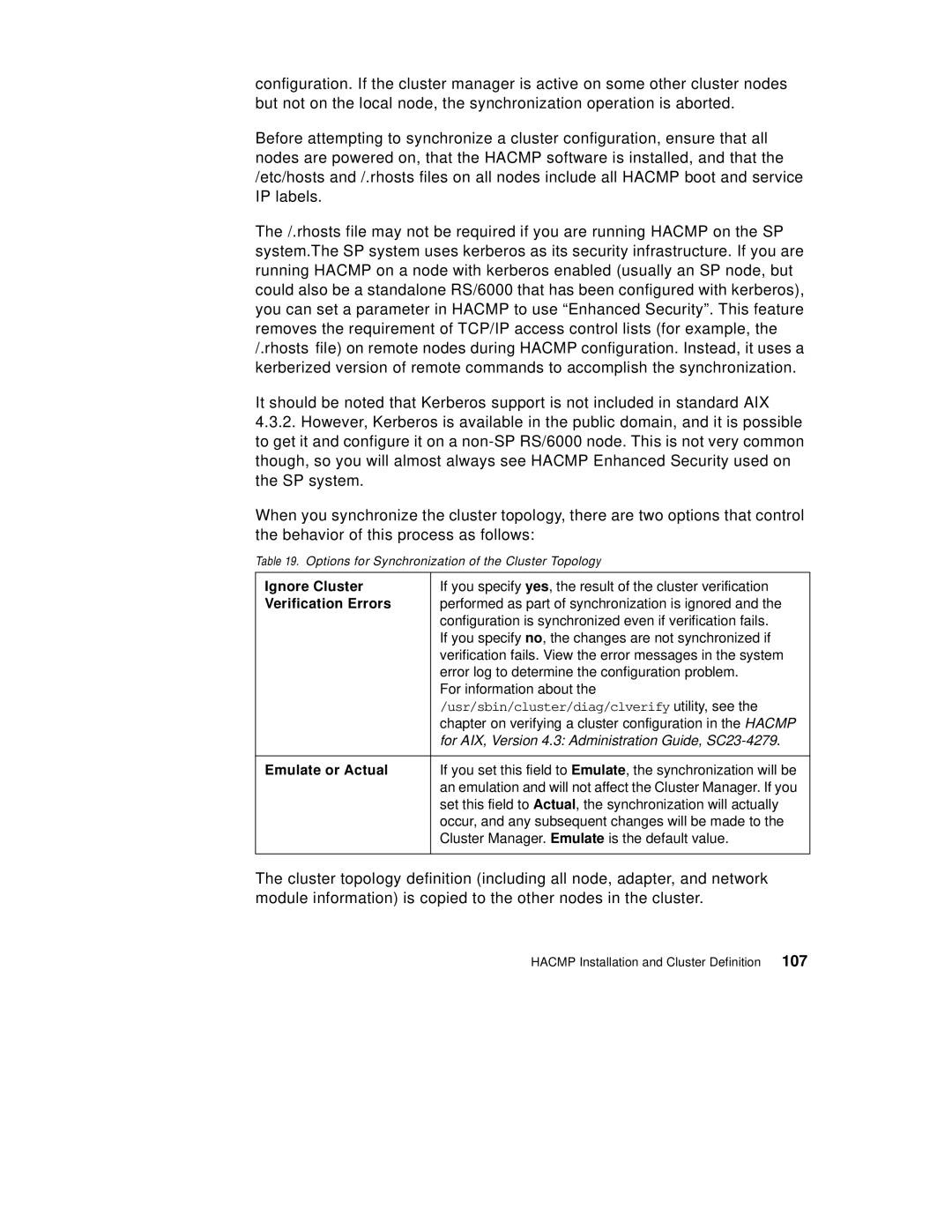configuration. If the cluster manager is active on some other cluster nodes but not on the local node, the synchronization operation is aborted.
Before attempting to synchronize a cluster configuration, ensure that all nodes are powered on, that the HACMP software is installed, and that the /etc/hosts and /.rhosts files on all nodes include all HACMP boot and service IP labels.
The /.rhosts file may not be required if you are running HACMP on the SP system.The SP system uses kerberos as its security infrastructure. If you are running HACMP on a node with kerberos enabled (usually an SP node, but could also be a standalone RS/6000 that has been configured with kerberos), you can set a parameter in HACMP to use “Enhanced Security”. This feature removes the requirement of TCP/IP access control lists (for example, the /.rhosts file) on remote nodes during HACMP configuration. Instead, it uses a kerberized version of remote commands to accomplish the synchronization.
It should be noted that Kerberos support is not included in standard AIX
4.3.2.However, Kerberos is available in the public domain, and it is possible to get it and configure it on a
When you synchronize the cluster topology, there are two options that control the behavior of this process as follows:
Table 19. Options for Synchronization of the Cluster Topology
Ignore Cluster | If you specify yes, the result of the cluster verification |
Verification Errors | performed as part of synchronization is ignored and the |
| configuration is synchronized even if verification fails. |
| If you specify no, the changes are not synchronized if |
| verification fails. View the error messages in the system |
| error log to determine the configuration problem. |
| For information about the |
| /usr/sbin/cluster/diag/clverify utility, see the |
| chapter on verifying a cluster configuration in the HACMP |
| for AIX, Version 4.3: Administration Guide, |
|
|
Emulate or Actual | If you set this field to Emulate, the synchronization will be |
| an emulation and will not affect the Cluster Manager. If you |
| set this field to Actual, the synchronization will actually |
| occur, and any subsequent changes will be made to the |
| Cluster Manager. Emulate is the default value. |
|
|
The cluster topology definition (including all node, adapter, and network module information) is copied to the other nodes in the cluster.
